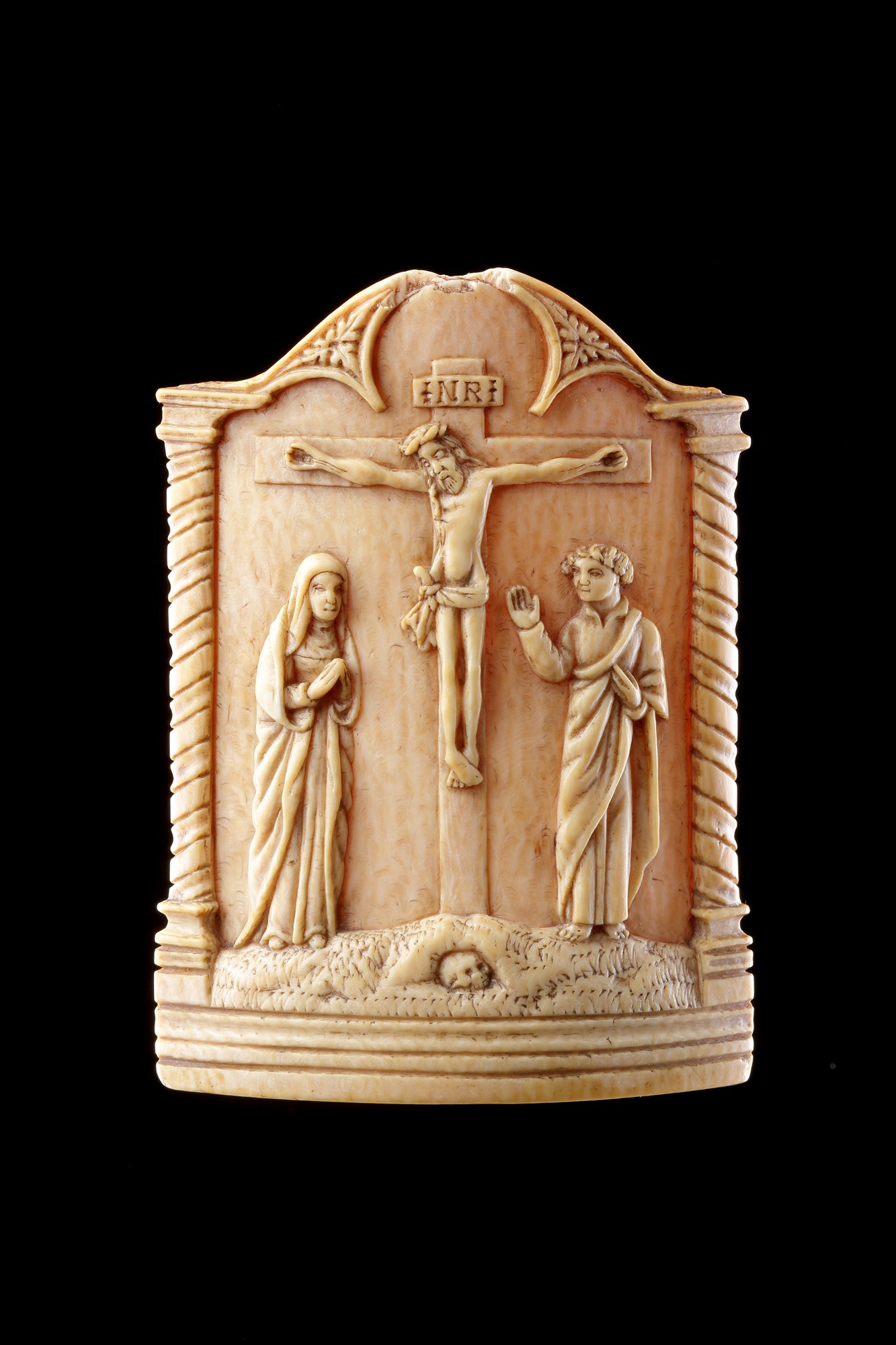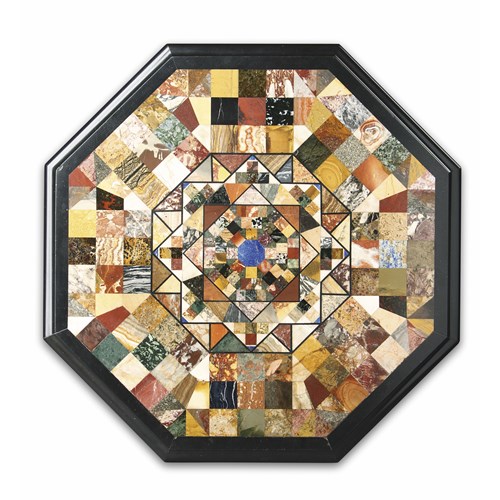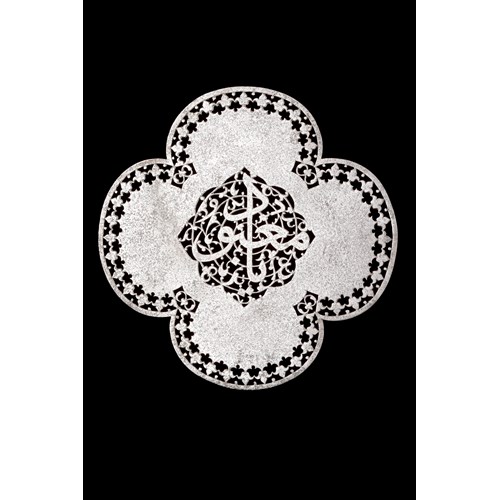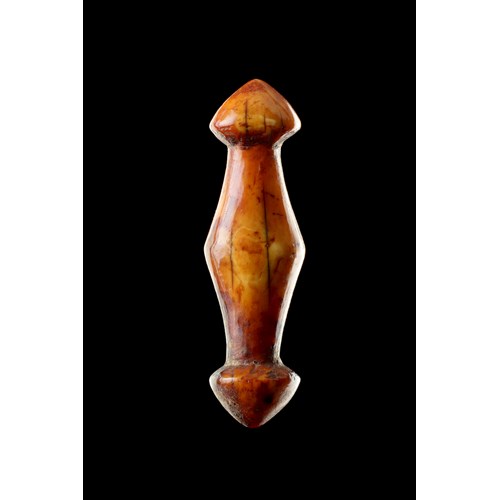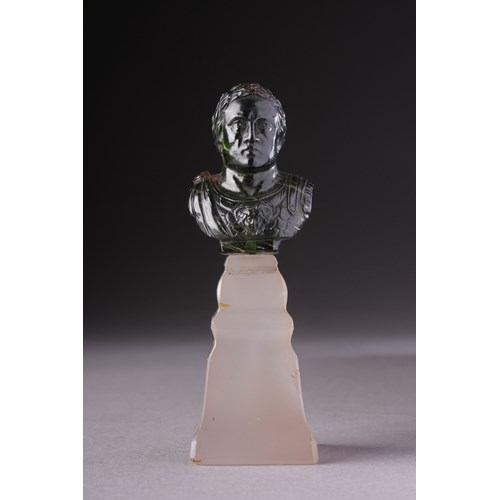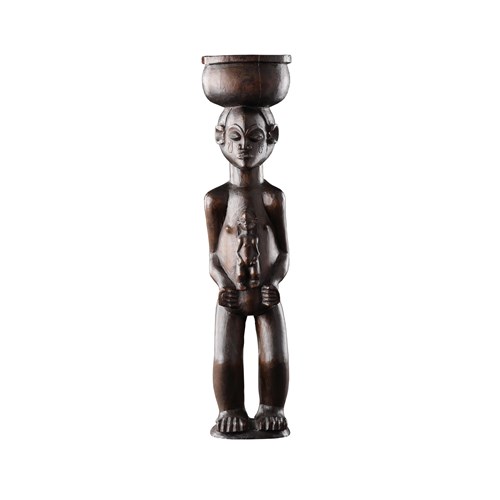A Rare Netherlandish Ivory Pax Carved with a Relief of the Crucifixion
Epoque 1500-1700
Origine Netherlands, The Netherlands, Holland
Medium Ivory
Dimension 11 x 8 x 2 cm (4³/₈ x 3¹/₈ x 0³/₄ inches)
The reverse with a slot for a handle (now missing)
The arched top with old worn damage
Old smooth silky creamy patina
Late 16th Century
Size: 11cm high, 8cm wide, 2cm deep - 4¼ ins high, 3 ins wide, ¾ ins deep
Belgium CITES: 2025/BE00987/CE
Epoque: 1500-1700
Origine: Netherlands, The Netherlands, Holland
Medium: Ivory
Dimension: 11 x 8 x 2 cm (4³/₈ x 3¹/₈ x 0³/₄ inches)
Provenance: Ex Private Netherlands collection
Belgium CITES: 2025/BE00987/CE
Literature: Pax were used to receive the kiss of peace by the celebrant of the Mass which was then transmitted to the other priests and then to the laity. In the 13th century, direct kissing among the congregation was replaced by each in turn kissing the pax which was carried around to those present in the church. The pax was held out on its handle and was wiped with a cloth between each person. The range of medical and social conditions, especially plague, made the practice of direct kissing undesirable. Believed to have been instituted by the Franciscans the ritual response by the person holding the pax was to say ‘Paxtecum’ who then received the reply ‘Et cum spirtutuo’.
The gradual decline in its use in the Catholic Mass is said to be because of the disputes over precedence that it caused. Another reason may have been that kissing the Pax had become a substitute for receiving the Eucharist avoiding the need for fasting and other preparations for Holy Communion. Today the practice is remembered by the convivial shaking of hands, with the words ‘Peace be with you, And with you’.
Plus d'œuvres d'art de la Galerie


